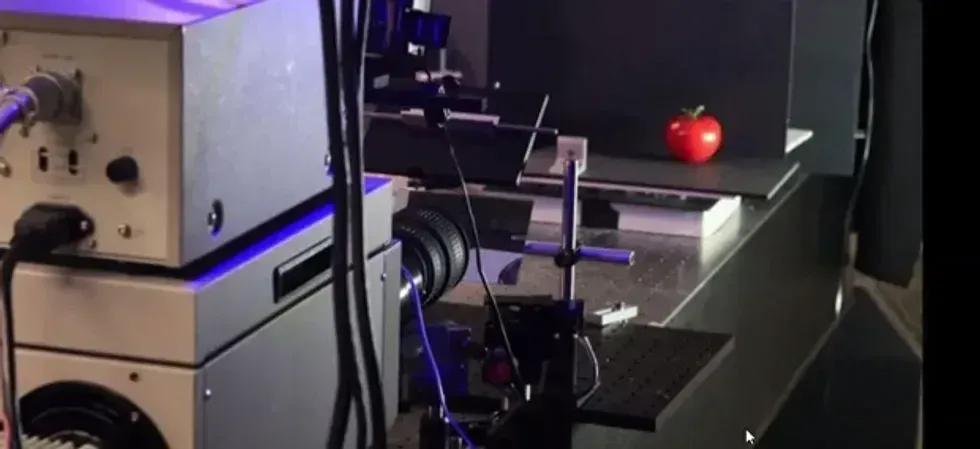In March, NASCAR driver Josh Wise received an email from a member of the social-networking service Reddit about a crowdfunding campaign to sponsor his car for a May race at Talladega Superspeedway. At the time, Wise’s team was only eight strong—this on a circuit in which the biggest stars have hundreds of staff and millions of dollars’ worth of sponsors. Earlier that month, at the Food City 500, Wise had driven an unsponsored car. He needed at least $70,000 to get his crew to Talladega.
The fundraiser was collecting money not in U.S. dollars but in something called dogecoin. All the coins were being deposited into a digital “wallet,” and they all had a dog’s face on them.
[quote position="left" is_quote="true"]Bitcoin investors have been known to hoard their coins with the hope of selling them when the value rises, while dogecoin users are better known for sharing.[/quote]
“Honestly, I was very confused,” Wise says. “I was like, is this electronic money? Is it real money? I don’t get it.”
Wise doesn’t think of himself as a tech-savvy person. The 31-year-old from Huntersville, N.C., had never even heard of Reddit, let alone virtual currency. He learned quickly.
In just a week, Wise’s fans in the dogecoin community raised the equivalent of $55,000, which they then exchanged into U.S. dollars and donated to his team. Wise plastered the dogecoin mascot, a quizzical-looking Shiba Inu, on his No. 98 Chevrolet. A few weeks later, his backers helped him beat Danica Patrick in a fan vote to earn the final spot in the NASCAR Sprint All-Star Race, a May showcase for which Wise would otherwise have had no chance of qualifying. His finish in that race (15th) earned $120,000 for his NASCAR team, Phil Parson Racing.
“That was a really big deal,” Wise says.
To keep up the “Dogecar” sponsorship, the community—whose members affectionately refer to themselves as shibes, a warmhearted abbreviation of Shiba Inu—bought thousands of dogecoin pit-crew shirts from Wise’s fundraising site and continued to donate. Their efforts vaulted Wise into NASCAR relevance and earned national attention for the young cryptocurrency. Wise and his team credit the shibes for affecting his career in ways he never could have imagined. And he hasn’t even met any of them.
***
Cryptocurrency can be an intimidating subject. At its core, it’s a digital medium of exchange that is enciphered for security and anticounterfeiting measures. Dogecoin is a type of cryptocurrency. Unlike virtual currencies such as Facebook Credits, which have a set value in the real world, cryptocurrencies are speculative. Their value fluctuates depending on supply and demand.
Bitcoin is the world’s best-known and most widely used cryptocurrency. Created in 2009, it has fluctuated in value from $100 to more than $1,000 a coin. To “mine” for coins, computers perform computations to crack extremely large mathematical problems. When those problems are solved, coins are made available to the user. Bitcoins can be spent anywhere that accepts them (a rapidly growing list of businesses that includes the dating site OkCupid, the travel site Expedia, and the ticket office of the NBA team the Sacramento Kings), and they can be sold and converted into real-world currency. An online public ledger anonymously posts all transactions.
While one bitcoin’s current value is more than $630, one dogecoin is worth a fraction of a penny. The low value is a deliberate feature in the currency’s code—there is no hard limit on how many dogecoins can exist. Its inventors’ goal is to get around 100 billion coins in circulation (right now there are about 86 billion). In comparison, bitcoin’s circulation will cap out at 21 million. The high supply and low value encourage shibes to give their coins away. Read a funny tweet or hear about an inspiring charity? Why not cough up a few tenths of a cent?
Bitcoin has attracted serious financial investors, in it for profit. Dogecoin attracts people who enjoy Photoshopping a dog’s face onto inanimate objects. As a result, bitcoin investors have been known to hoard their coins, with the hope of selling them when the value rises, while dogecoin users are better known for sharing.
***
The real “doge” is an 8-year-old canine named Kabosu. In 2010 her owner, kindergarten teacher Atsuko Sato, just happened to photograph her in a moment when she looked particularly skeptical and posted the picture on her blog. Something about Kabosu’s expression captured the internet’s imagination. She looked like a dog processing a dozen thoughts at once, a perfect canvas for the type of internal-monologue captions that mischievous meme-makers had recently started applying to grimacing pictures of Elijah Wood.
Members of the message board website 4chan, a notorious hub for trolls and hackers, found the picture and began doing just that, colorfully imagining the dog’s thoughts, always in the oft-ridiculed Comic Sans font. The meme quickly spawned two Tumblrs that extended the joke, shibaconfessions.tumblr.com and (the now-defunct) fuckyeahdoge.tumblr.com. Even YouTube joined the fun (search “doge meme”). Kabosu became doge, and doge became a star.
One of Kabosu’s fans was Jackson Palmer, a co-creator of dogecoin. The 26-year-old self-described geek from Sydney, Australia, works in San Francisco as a product-marketing manager for Adobe. The day I meet him, he’s wearing a Keyboard Cat T-shirt—a reference to the keyboard-playing orange tabby that went viral in 2009. Palmer is a man of memes. A favorite of his is Actual Advice Mallard, in which life advice is superimposed over a photo of a duck.
[quote position="full" is_quote="true"]Dogecoin is now eight months old, and the community is increasingly known for building massive support for “the underdoge”—overlooked individuals, groups, and communities fighting uphill battles.[/quote]
Near the end of 2013, Palmer came up with the idea for dogecoin by accident. That December, new cryptocurrencies seemed to be launching every day. The doge meme was spreading across the internet. Palmer put the two together in a tweet. “I’m going to invest in dogecoin as the next big thing,” he joked.
Then something unexpected happened. Palmer started receiving dozens of messages from people who loved the idea. So he and his friend Billy Markus decided to make dogecoin a real thing. They haphazardly coded it in a few hours using the code base of an existing cryptocurrency, litecoin, and launched it shortly thereafter. In the first month, more than 1 million people visited the dogecoin website Palmer had set up. A subreddit dedicated to dogecoin attracted thousands of users. At the moment I’m writing this, more than 85,000 people are active in that group—mining, buying, tipping, and spending doge.
Palmer was sure the joke would lose momentum and fade after a week. But dogecoin is now eight months old, and the community is increasingly known for building massive support for “the underdoge”—overlooked individuals, groups, and communities fighting uphill battles.
The shibes have successfully rallied behind the Doge 4 Water campaign, which raised more than $50,000 to supply the most impoverished regions in Kenya with clean drinking water. They’ve funded campaigns for victims of the Washington landslide, assisted Minnesota families of terminally ill children with housing payments, and raised money for Doge 4 Kids, an initiative that pairs service dogs with disabled children.
Not that the community has ever lost its sense of humor. Josh Mohland, the creator of Dogetipbot (a service that lets users tip one another on Reddit), created the Dogecoin Fundation, a ludicrous half-brother to dogecoin’s official philanthropic foundation. The Fundation hosts the Scotch4Mohland fundraiser, in which people can donate doge to help Mohland buy Scotch for himself. There’s also the Nachos4Jackson fund, where all contributions go toward nachos for Palmer.
Most dogecoin transactions take place through these types of tipping donations. Mohland’s tipbot allows users to make instant dogecoin micropayments to one another using tweets and Reddit comments, the virtual equivalent of throwing change at a person. The service itself is free, and users have to make only a negligible transaction payment called a miners fee. The tipbot recognizes certain commands and automatically processes the transactions.
Compare this with more classic modes of exchange, where transaction fees can deter people from donating very small amounts of money to charities. The same goes for services like PayPal.
“In the past, a charity wouldn’t care about a 50-cent donation,” says Matt Conn, the San Francisco–based video game developer who started the LGBTQ gaming convention GaymerX, and who dabbles in cryptocurrencies. “But it matters when you have 80,000 people on Reddit who are all donating 50 cents, because that’s $40,000. It’s strength in numbers.”
“It’s also more satisfying to give,” Conn says. “Bitcoin is worth so much that if I wanted to give you $5 now, it would be like 0.001 of a bitcoin, so you wouldn’t feel like that was anything. If I want to give you $5 in dogecoin, that’s like 3,000 dogecoin, so it feels more substantial.”
As the community continues to grow and fund new campaigns, Palmer makes a point to emphasize dogecoin’s humble roots. At the end of the day, he explains, the meme is the message. “You can’t do anything bad with that,” he says. “If you’ve got this Shiba Inu face looking at you, you can’t take yourself too seriously, right?”
This sense of low stakes defines the community’s character, but it also completes the joke. Dogecoin skewers the future-of-the-global-economy hype surrounding cryptocurrencies by satirizing such self-importance. The shibes relish campaign-based silliness and impact that takes surprising, frequently meaningful, often hilarious directions because none of it quite makes sense. A crypto-joke that helps landslide victims? The lack of logic is a deliberate evasion of a clean media narrative. Shibes don’t want to be on the cover of Newsweek.
“A lot of people like fighting for the same thing, even if they don’t always know why,” says Conn. “It’s fun. It’s really fun.”
Correction: A previous version of this story referred to Kabosu as a male dog. She is a female.
Illustrations by Will Bryant
















 TikTok · Bring Back Doors
TikTok · Bring Back Doors 



 Label for Middle Earth Organics' Organic Tomato & Porcini Mushroom Sauce
Label for Middle Earth Organics' Organic Tomato & Porcini Mushroom Sauce "Judith Beheading Holofernes" by Caravaggio (1599)
"Judith Beheading Holofernes" by Caravaggio (1599)